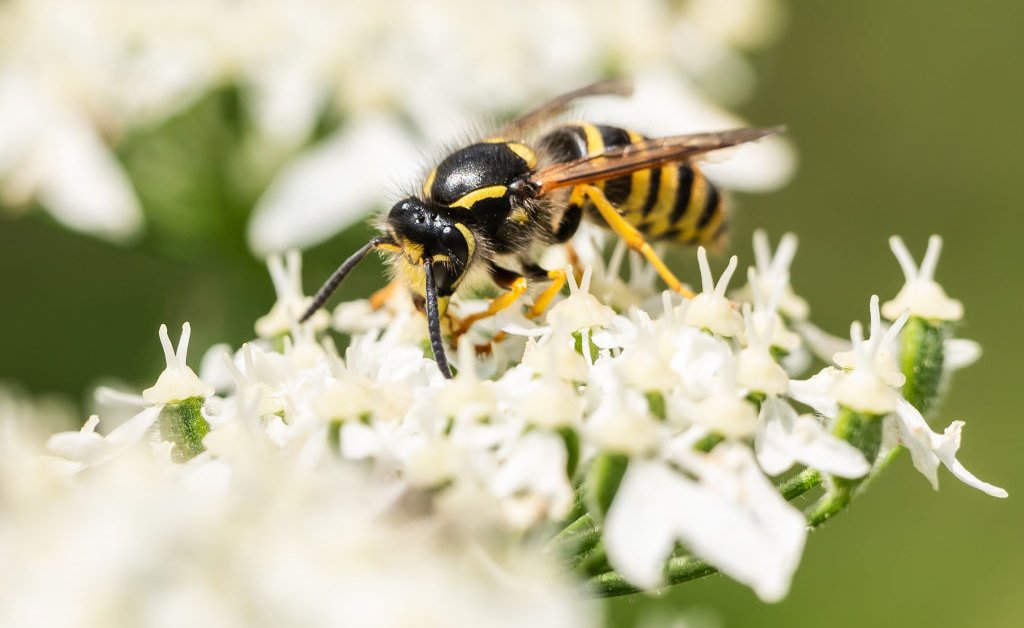Rising Temperatures, Shifting Bugs: Climate Change's Summer Impact

Welcome to your ultimate source for breaking news, trending updates, and in-depth stories from around the world. Whether it's politics, technology, entertainment, sports, or lifestyle, we bring you real-time updates that keep you informed and ahead of the curve.
Our team works tirelessly to ensure you never miss a moment. From the latest developments in global events to the most talked-about topics on social media, our news platform is designed to deliver accurate and timely information, all in one place.
Stay in the know and join thousands of readers who trust us for reliable, up-to-date content. Explore our expertly curated articles and dive deeper into the stories that matter to you. Visit Best Website now and be part of the conversation. Don't miss out on the headlines that shape our world!
Table of Contents
Rising Temperatures, Shifting Bugs: Climate Change's Summer Impact
Summer heatwaves are becoming more frequent and intense, a stark reality of climate change impacting not just humans, but the entire ecosystem. This year's scorching temperatures are already causing significant shifts in insect populations, with potentially far-reaching consequences for agriculture, public health, and the environment.
A World Warmer, and Buggier?
The relationship between temperature and insect populations is complex. While some species thrive in warmer conditions, many are struggling to adapt to the rapid pace of climate change. Higher temperatures can lead to:
- Range Shifts: Insects are migrating to higher altitudes and latitudes in search of cooler climates. This disrupts established ecosystems and can lead to imbalances in predator-prey relationships.
- Increased Reproduction: Warmer temperatures can accelerate the reproductive cycle of some insects, leading to population booms. This can result in increased crop damage and the spread of vector-borne diseases.
- Altered Life Cycles: Changes in temperature can disrupt the delicate timing of insect life cycles, affecting their ability to find food and mates.
- Increased Mortality: Extreme heat can directly kill insects, especially those less adaptable to rapid temperature fluctuations.
The Agricultural Impact:
The consequences for agriculture are particularly concerning. Pest outbreaks are becoming more frequent and severe, threatening crop yields and food security. For example, the increased range of certain pests like the Colorado potato beetle is leading to greater crop losses in previously unaffected areas. Farmers are facing increased costs associated with pest control, and the potential for reduced harvests has significant economic implications. [Link to article on agricultural impacts of climate change]
Public Health Concerns:
Warmer temperatures also expand the range of disease-carrying insects, like mosquitoes and ticks. This increases the risk of diseases like Lyme disease, West Nile virus, and Zika virus. [Link to CDC website on vector-borne diseases] Public health officials are grappling with the challenge of controlling the spread of these diseases in areas previously unaffected.
Beyond the Bugs: Ecosystem Disruption:
The impact extends beyond agriculture and human health. Changes in insect populations can trigger cascading effects throughout the ecosystem. Pollinators, crucial for plant reproduction, are particularly vulnerable to climate change. A decline in pollinator populations could have devastating consequences for biodiversity and ecosystem services. [Link to article on pollinator decline]
What Can We Do?
Addressing this challenge requires a multifaceted approach. Reducing greenhouse gas emissions is paramount to mitigating the effects of climate change. In addition, we need:
- Improved pest management strategies: Developing more sustainable and effective pest control methods is crucial to protecting crops and minimizing environmental impact.
- Enhanced surveillance and monitoring: Close monitoring of insect populations can help identify emerging threats and inform effective control measures.
- Protecting and restoring habitats: Maintaining and restoring diverse habitats provides refuge for insects and helps build resilience to climate change.
The shifting insect populations driven by rising temperatures serve as a stark reminder of the urgency of addressing climate change. The consequences are far-reaching, impacting food security, public health, and the delicate balance of our ecosystems. Immediate and decisive action is needed to mitigate these effects and safeguard our future.

Thank you for visiting our website, your trusted source for the latest updates and in-depth coverage on Rising Temperatures, Shifting Bugs: Climate Change's Summer Impact. We're committed to keeping you informed with timely and accurate information to meet your curiosity and needs.
If you have any questions, suggestions, or feedback, we'd love to hear from you. Your insights are valuable to us and help us improve to serve you better. Feel free to reach out through our contact page.
Don't forget to bookmark our website and check back regularly for the latest headlines and trending topics. See you next time, and thank you for being part of our growing community!
Featured Posts
-
 Wwe Smack Down Results Tag Team Title On The Line Money In The Bank Qualifying Matches 5 23
May 25, 2025
Wwe Smack Down Results Tag Team Title On The Line Money In The Bank Qualifying Matches 5 23
May 25, 2025 -
 Georgia Bulldogs Edge Out Florida Gators In Super Regional Game 2
May 25, 2025
Georgia Bulldogs Edge Out Florida Gators In Super Regional Game 2
May 25, 2025 -
 Students Charles River Swim Leads To Large Scale Emergency Response
May 25, 2025
Students Charles River Swim Leads To Large Scale Emergency Response
May 25, 2025 -
 Justice Department Controversy Agent Fired For Denying Mel Gibson Gun
May 25, 2025
Justice Department Controversy Agent Fired For Denying Mel Gibson Gun
May 25, 2025 -
 Hle Vs Gen G And Dplus Kia Lck Powerhouses Clash In Post Patch 25 10 Showdown
May 25, 2025
Hle Vs Gen G And Dplus Kia Lck Powerhouses Clash In Post Patch 25 10 Showdown
May 25, 2025
